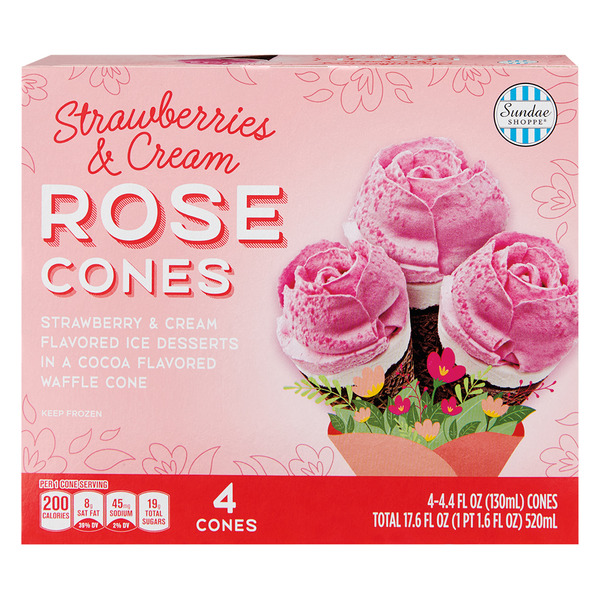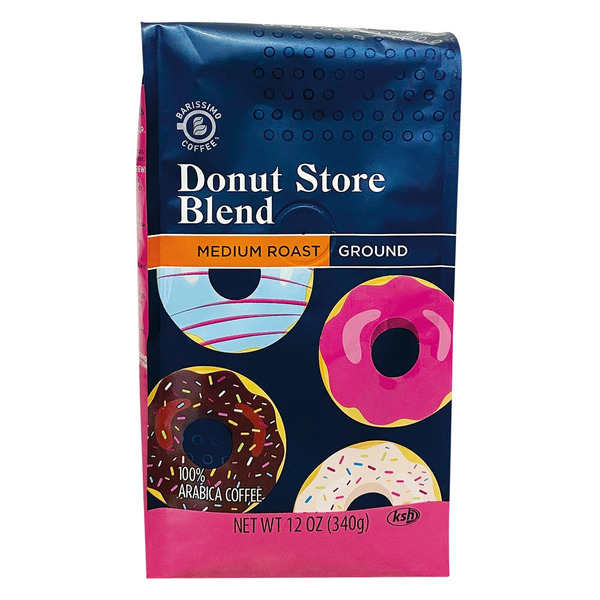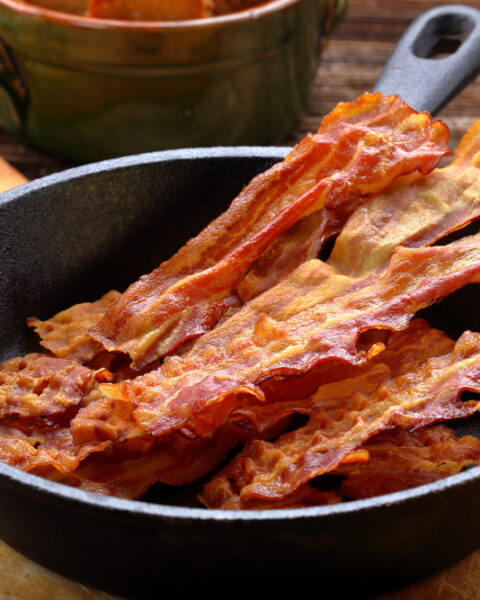We’ve all heard it: low-fat foods are the holy grail of healthy eating. For years, we’ve been reaching for products labeled “low-fat,” thinking we’re making a smarter choice for our health. But as it turns out, things aren’t as simple as they seem. What if I told you that many of the ideas we’ve held onto about low-fat foods aren’t actually true? It’s easy to get caught up in these myths because they sound so convincing, but there’s a lot more to the story. Let’s take a closer look at some of the biggest misconceptions about low-fat foods and why they might not be as healthy as we’ve been led to believe.
Contents
- 1 Low-Fat Foods Are Always Healthier
- 2 Low-Fat Means Low-Calorie
- 3 Low-Fat Diets Are Best for Weight Loss
- 4 Low-Fat Foods Are Better for Heart Health
- 5 Low-Fat Dairy Is More Nutritious
- 6 Low-Fat Foods Help Control Blood Sugar
- 7 All Fats Are Bad for You
- 8 Low-Fat Foods Are Better for Everyone
- 9 Low-Fat Foods Are Better for Digestive Health
- 10 Low-Fat Foods Are Less Processed
- 11 Low-Fat Foods Are Always Low in Sodium
- 12 Low-Fat Foods Help Reduce Inflammation
- 13 Low-Fat Diets Are Ideal for Athletes
- 14 Low-Fat Foods Are More Filling
- 15 Low-Fat Diets Are Best for Long-Term Health
- 16 More From RetailShout
- 17 18 Decadent Chocolate Treats You Can Whip Up in Under an Hour
- 18 13 Best ALDI Coffee Blends to Start Your Day Right
Low-Fat Foods Are Always Healthier

Low-fat foods are often marketed as healthier, but this is misleading. Many low-fat products compensate for the loss of flavor by adding sugar or artificial additives, which can make them just as unhealthy as, or even worse than, their full-fat counterparts. This approach can lead to overconsumption of sugar, contributing to weight gain and other health issues. Moreover, fats are essential for the absorption of certain vitamins and for overall cellular function. Therefore, not all low-fat products are beneficial, and it’s essential to consider the overall nutritional content rather than just the fat content.
Low-Fat Means Low-Calorie

Another common misconception is that low-fat foods are also low in calories. However, many low-fat products are calorie-dense due to added sugars and other ingredients. These extra calories can contribute to weight gain if not managed properly. It’s important to understand that “low-fat” does not automatically translate to “low-calorie,” and relying solely on low-fat foods for weight management can be counterproductive. A balanced diet with moderate amounts of healthy fats is more effective for maintaining a healthy weight.
Low-Fat Diets Are Best for Weight Loss

While reducing fat intake was once seen as the best approach for weight loss, research now shows that low-fat diets are not necessarily more effective than other diets. In fact, many people find low-fat diets unsustainable, leading to eventual weight regain. Healthy fats, like those from avocados, nuts, and olive oil, can actually support weight loss by promoting satiety and reducing overall calorie intake. The key to weight management lies in a balanced approach, not just cutting out fat.
Low-Fat Foods Are Better for Heart Health

Contrary to popular belief, not all low-fat foods are beneficial for heart health. Some low-fat products contain trans fats or excessive sugars, both of which can increase the risk of heart disease. Additionally, certain fats, such as omega-3 fatty acids, are crucial for heart health and should not be excluded from the diet. It’s better to focus on consuming healthy fats in moderation rather than eliminating fat altogether.
Low-Fat Dairy Is More Nutritious

Many believe that low-fat dairy products are more nutritious, but this isn’t always true. Full-fat dairy contains fat-soluble vitamins such as A, D, E, and K, which are often lost when the fat is removed. Additionally, some studies suggest that full-fat dairy may help protect against obesity and cardiovascular disease. Choosing between full-fat and low-fat dairy should be based on personal health goals and nutritional needs rather than the assumption that low-fat is superior.
Low-Fat Foods Help Control Blood Sugar

It’s a myth that low-fat foods are always better for controlling blood sugar. In reality, many low-fat foods contain added sugars to improve taste, which can lead to spikes in blood sugar levels. For individuals with diabetes or insulin resistance, these sugar-laden low-fat foods can be more harmful than their full-fat versions. A diet that includes healthy fats can help stabilize blood sugar levels more effectively than one that replaces fat with sugar.
All Fats Are Bad for You

The myth that all fats are harmful has been debunked by nutritional experts. Not all fats are created equal; while trans fats and excessive saturated fats are unhealthy, unsaturated fats found in foods like avocados, nuts, and olive oil are beneficial. These healthy fats support heart health and are necessary for various bodily functions, including brain health and hormone production. Eliminating all fats from your diet can lead to deficiencies in essential fatty acids, which are critical for overall health.
Low-Fat Foods Are Better for Everyone

Not everyone benefits from a low-fat diet. For some people, especially those with certain metabolic conditions, low-fat diets can lead to increased cravings and overeating. Additionally, dietary fats are crucial for hormone production and brain health, so excessively reducing fat intake can have negative health consequences. It’s important to tailor dietary choices to individual health needs rather than adopting a one-size-fits-all approach.
Low-Fat Foods Are Better for Digestive Health

Low-fat foods are often thought to be easier on the digestive system, but this isn’t always the case. Some low-fat products contain artificial additives and preservatives that can cause digestive discomfort or exacerbate conditions like irritable bowel syndrome (IBS). In contrast, natural fats, especially those found in whole foods like nuts and seeds, can promote healthy digestion. Thus, a moderate intake of healthy fats is beneficial for maintaining digestive health.
Low-Fat Foods Are Less Processed

The belief that low-fat foods are less processed is incorrect. In fact, many low-fat products undergo extensive processing to remove fat and enhance flavor, texture, and shelf life. This processing often involves the addition of artificial ingredients, preservatives, and other additives that can diminish the food’s nutritional value. Processed low-fat foods can also contain unhealthy trans fats or hydrogenated oils. Opting for whole, minimally processed foods, regardless of fat content, is generally a healthier choice.
Low-Fat Foods Are Always Low in Sodium

Many people assume that low-fat foods are also low in sodium, but this is not the case. To enhance flavor, some low-fat products contain high levels of sodium, which can contribute to high blood pressure and other health issues. It’s crucial to check the sodium content on the labels of low-fat products, as they might be misleadingly marketed as healthier options when they are not.
Low-Fat Foods Help Reduce Inflammation

The belief that low-fat foods reduce inflammation is not entirely accurate. Healthy fats, such as those found in olive oil and fatty fish, contain anti-inflammatory properties that can help reduce chronic inflammation in the body. On the other hand, low-fat processed foods, which are often high in refined carbs and sugars, can contribute to inflammation. Therefore, including healthy fats in your diet is essential for managing inflammation effectively.
Low-Fat Diets Are Ideal for Athletes

Athletes often need higher amounts of fat in their diets to support energy levels and recovery. Low-fat diets can lead to a deficiency in essential fatty acids, which are crucial for muscle repair and overall performance. Moreover, fats are a dense source of energy, and cutting them out can result in fatigue and decreased endurance. A balanced diet that includes adequate amounts of healthy fats is more suitable for athletes than a strict low-fat regimen.
Low-Fat Foods Are More Filling

There’s a misconception that low-fat foods are more filling, but this is often not the case. Fats take longer to digest, which helps keep you feeling full for longer periods. Low-fat foods, especially those high in carbohydrates and sugars, may cause quick spikes and drops in blood sugar levels, leading to hunger soon after eating. Including moderate amounts of healthy fats in meals can improve satiety and prevent overeating.
Low-Fat Diets Are Best for Long-Term Health

While low-fat diets were once recommended for long-term health, research now shows that they may not be the best approach. Healthy fats are essential for numerous bodily functions, including brain health, hormone production, and nutrient absorption. Excluding fats from the diet can lead to deficiencies and other health problems over time. A balanced diet that includes healthy fats is more beneficial for long-term health than a strict low-fat diet.
This article originally appeared on RetailShout.
More From RetailShout
15 Delicious ALDI Desserts That Will Impress Your Guests

These ALDI desserts are not only delicious but also easy to prepare and serve, making them ideal for any occasion. Whether you’re hosting a casual get-together or a formal dinner party, these treats will leave your guests asking for seconds. Read More.
18 Decadent Chocolate Treats You Can Whip Up in Under an Hour

We‘ve all daydreamed about having a golden ticket to a chocolate factory, surrounded by endless sweets and rivers of rich cocoa. While that might be a fantasy, whipping up your own decadent chocolate treats doesn‘t have to be! Read More.
13 Best ALDI Coffee Blends to Start Your Day Right

If your morning routine needs a serious wake-up call, ALDI‘s coffee blends have you covered with bold flavors and smooth sips. Whether you‘re craving a rich dark roast or a hint of hazelnut, these picks are guaranteed to fuel your day. Read More.






